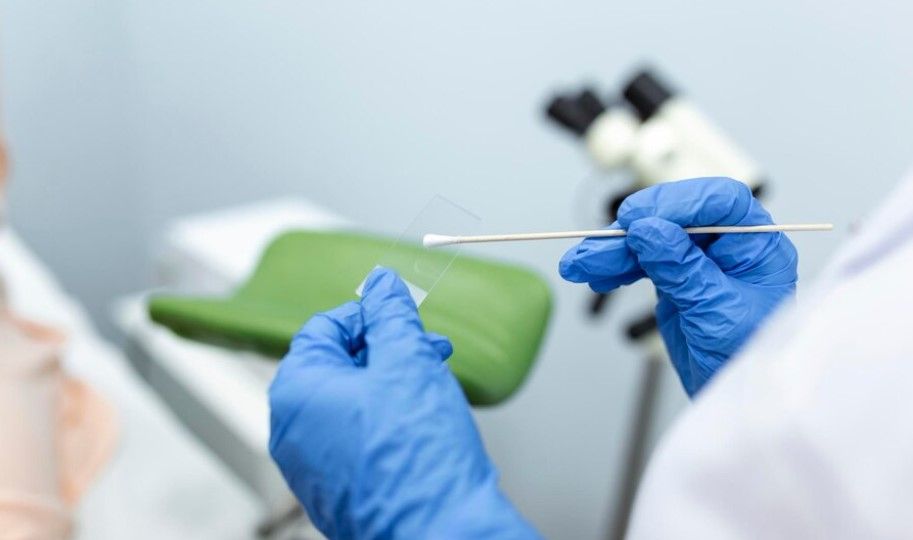

Cervical cancer is ranked as the fourth most common cancer affecting women worldwide in both incidence and mortality. But thanks to advancements in medical science, it is also one of the most preventable types of cancer. The public health system in Australia offers free cervical screening tests for women, allowing them to identify abnormalities and reduce the risk of cervical cancers.
If you’re looking for a women’s clinic Pap test near me, visit our women’s health clinic in Sydney today.
In this blog, you will learn more about cervical cancer and understand the role of various preventive measures, such as cervical screening, the HPV vaccine, and the Pap test.
Understanding Cervical Cancer
Cervical cancer occurs when abnormal cell growth is detected in the cervix, the lower part of the uterus. It typically develops slowly, starting as precancerous changes, which can progress to a cancerous stage if left untreated. The primary cause of cervical cancer is persistent infection with high-risk types of human papillomavirus (HPV).
Although the disease can be life-threatening if not detected early, it is highly preventable with regular screening and vaccination. In Australia, the implementation of the National Cervical Screening Program has played a crucial role in reducing the number of cervical cancer cases.
The Role of Cervical Screening & Why It’s Important
Cervical screening is a critical tool in the prevention of cervical cancer. The test detects the presence of HPV, the virus responsible for almost all cases of cervical cancer. It detects abnormal changes in the cells of the cervix before they develop into cancer.
Screening tests are crucial because cervical cancer often develops without any noticeable symptoms. By the time symptoms appear, the cancer may already be at an advanced stage, making it harder to treat. Regular screening ensures that any abnormal changes are detected and managed before they progress to cancer. By identifying and treating these abnormalities early, cervical screening helps prevent cases of cervical cancer.
What is the HPV Vaccine?
In Australia, the HPV vaccine is offered as part of the National Immunisation Program (NIP) and is typically administered to both boys and girls at around 12 to 13 years of age. It protects against the most common high-risk HPV types that cause cervical cancer, as well as other HPV-related cancers and genital warts.
The HPV vaccine is most effective when given before individuals become sexually active, but it can still be beneficial for those who receive it later. The vaccine is free of charge under NIP for people up to the age of 19 and certain other groups.
When Should I Have The Cervical Screening Test?
The National Cervical Screening Program recommends that women start cervical screening at the age of 25, regardless of when they first became sexually active. The first test is recommended at 25 because cervical cancer is rare in younger women, and starting screening at this age has been shown to reduce unnecessary treatment for changes that are unlikely to lead to cancer.
Women who have had the HPV vaccine should still undertake the cervical screening test (CST), as the vaccine does not protect against all cancer-causing types of HPV. Regular screening remains essential for all women aged 25 to 74.
How Frequently Should I Have The Cervical Screening Test?
Women should have their first CST two years after their last Pap smear test. If the results are normal after that, the test is only needed every five years. This extended interval is possible because the CST is more effective at detecting the risk of cervical cancer than the Pap smear.
If your test results show any abnormalities or if you have certain risk factors, your healthcare provider may recommend more frequent testing.
What is a Pap Smear Test?
The Pap smear, also known as the Pap test, is a specific type of cervical screening that examines the cells collected from the cervix for any abnormalities. The main purpose is to detect precancerous or cancerous cells at an early stage when they can be treated effectively.
What To Expect at a Pap Test?
Like CST, the Pap smear also involves collecting a sample of cells from the cervix. The sample is then sent to a laboratory, where it is examined under a microscope for abnormal cells.
If the results are normal, you can continue with regular screenings as recommended by your healthcare provider. If there are any abnormalities, further testing or treatment may be needed.
Conclusion
In Australia, cervical cancer prevention is highly effective due to the combination of regular cervical screening, the HPV vaccine, and public health initiatives. By participating in the National Cervical Screening Program and staying informed about your health, you can significantly reduce your risk of developing cervical cancer.
To book a Pap test with us at Poet’s Corner Medical Centre, call 02 9698 3060.



